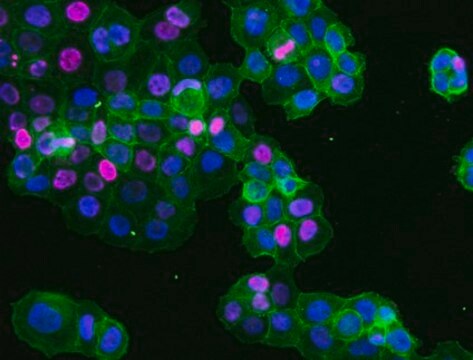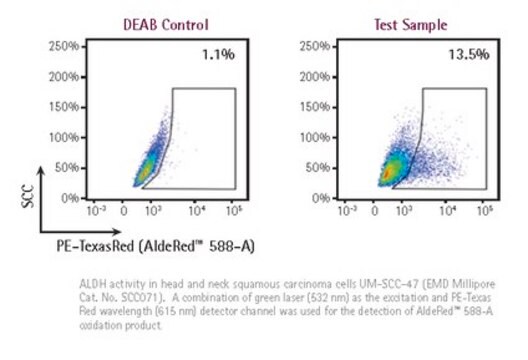MAK321
Acetaldehyde Assay Kit
sufficient for 100 fluorometric tests
Synonyme(s) :
Acetaldehyde Quantitation Kit
About This Item
Produits recommandés
Utilisation
sufficient for 100 fluorometric tests
Entrée
culture(s)
food(s)
serum
plasma
tissue
urine
beverage(s)
Application(s)
cosmetics
food and beverages
Méthode de détection
fluorometric
Maladie(s) pertinente(s)
gastrointestinal diseases
Température de stockage
−20°C
Catégories apparentées
Description générale
Application
- Food and Beverage Testing
- Gastrointestinal Disease Research
Caractéristiques et avantages
Simplified Process: Experience a streamlined process with the addition of only a single working reagent and a 30 minute room temperature reaction, reducing complexity and saving valuable time and effort.
Compatibility with High-Throughput Systems: Easily incorporate our kit into high-throughput handling systems, ensuring smooth and accurate processing, enhancing efficiency in your laboratory workflow.
Adéquation
Principe
Autres remarques
Mention d'avertissement
Danger
Mentions de danger
Classification des risques
Eye Dam. 1 - Met. Corr. 1 - Skin Corr. 1B
Code de la classe de stockage
8A - Combustible corrosive hazardous materials
Certificats d'analyse (COA)
Recherchez un Certificats d'analyse (COA) en saisissant le numéro de lot du produit. Les numéros de lot figurent sur l'étiquette du produit après les mots "Lot" ou "Batch".
Déjà en possession de ce produit ?
Retrouvez la documentation relative aux produits que vous avez récemment achetés dans la Bibliothèque de documents.
Notre équipe de scientifiques dispose d'une expérience dans tous les secteurs de la recherche, notamment en sciences de la vie, science des matériaux, synthèse chimique, chromatographie, analyse et dans de nombreux autres domaines..
Contacter notre Service technique



